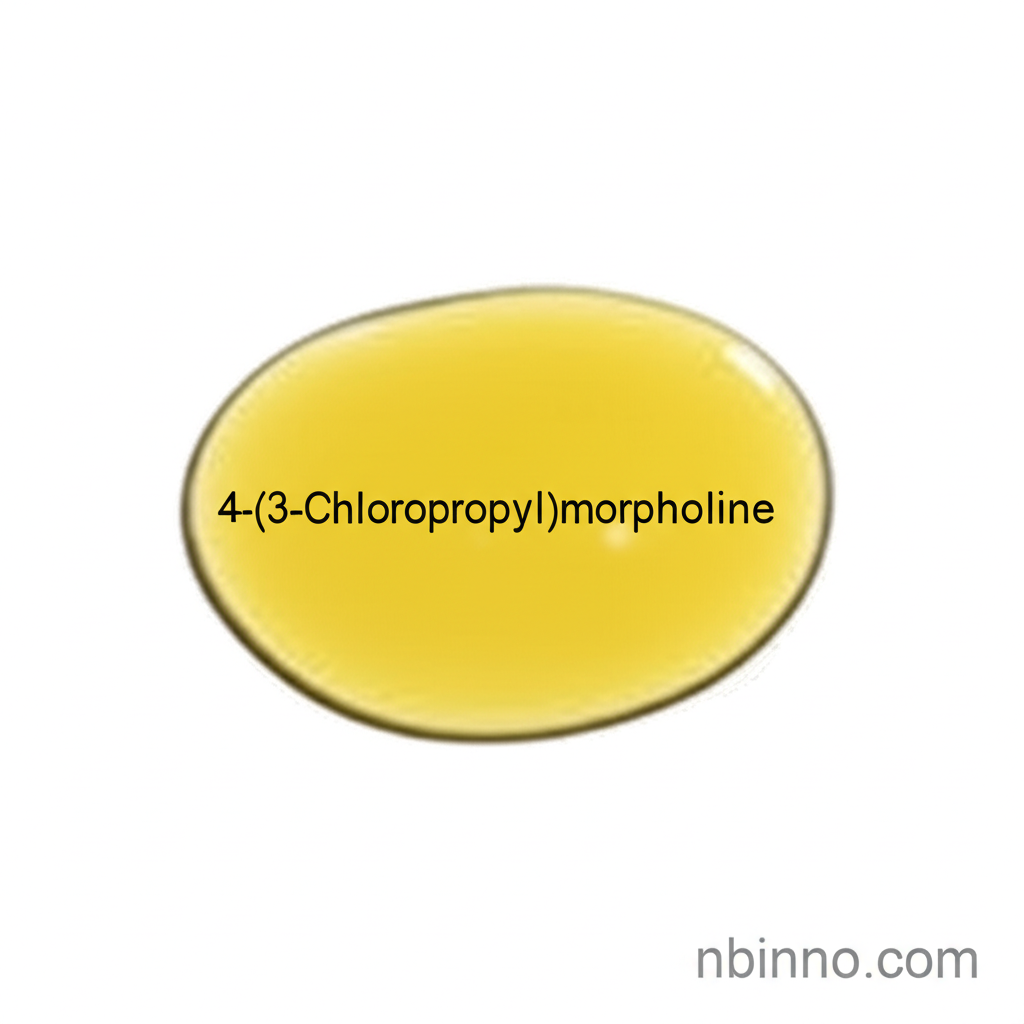Unlocking Pharmaceutical Innovation with 4-(3-Chloropropyl)morpholine
A vital intermediate for drug synthesis, driving advancements in targeted therapies.
Get a Quote & SampleProduct Core Value

4-(3-Chloropropyl)morpholine
This crucial compound, identified by CAS number 7357-67-7, stands as a pivotal building block in the complex landscape of pharmaceutical manufacturing. Its chemical structure and reactivity make it indispensable for the synthesis of various advanced intermediates and Active Pharmaceutical Ingredients (APIs), particularly in the development of targeted cancer therapies like Gefitinib. Its role extends to inhibiting cell proliferation and critical growth factor pathways, underscoring its significance in modern medicinal chemistry.
- As a key pharmaceutical intermediate, 4-(3-Chloropropyl)morpholine plays a vital role in the efficient synthesis of advanced intermediates and APIs, contributing to the development of life-saving drugs.
- The compound's unique structure, featuring a morpholine ring and a reactive chloropropyl group, enables its diverse applications in organic synthesis and the creation of complex molecular architectures.
- Leveraging the unique properties of morpholine derivatives in pharmaceutical synthesis, this chemical is essential for creating specific therapeutic agents.
- The availability and reliable supply of this organic synthetic reagent are critical for researchers and manufacturers in the pharmaceutical sector, ensuring uninterrupted production pipelines.
Key Advantages
Enhanced API Synthesis Efficiency
The use of 4-(3-Chloropropyl)morpholine as a Gefitinib intermediate streamlines the manufacturing process, leading to higher yields and purer products.
Versatile Chemical Reactivity
Its structure allows for participation in key nucleophilic substitution reactions, making it a valuable tool for various organic synthesis pathways.
Contribution to Targeted Therapies
By serving as a building block for drugs like Gefitinib, it directly contributes to advancements in cancer treatment and targeted therapies.
Key Applications
Pharmaceutical Synthesis
Serves as a critical intermediate for the production of Active Pharmaceutical Ingredients (APIs), notably in oncology drugs.
Organic Synthesis
Acts as a versatile reagent for creating complex organic molecules through its reactive chloroalkyl functionality.
Research & Development
Utilized in laboratories for the development of new chemical entities and the study of reaction mechanisms.
Fine Chemicals Manufacturing
Contributes to the broader fine chemicals industry as a valuable precursor for specialty chemicals.
